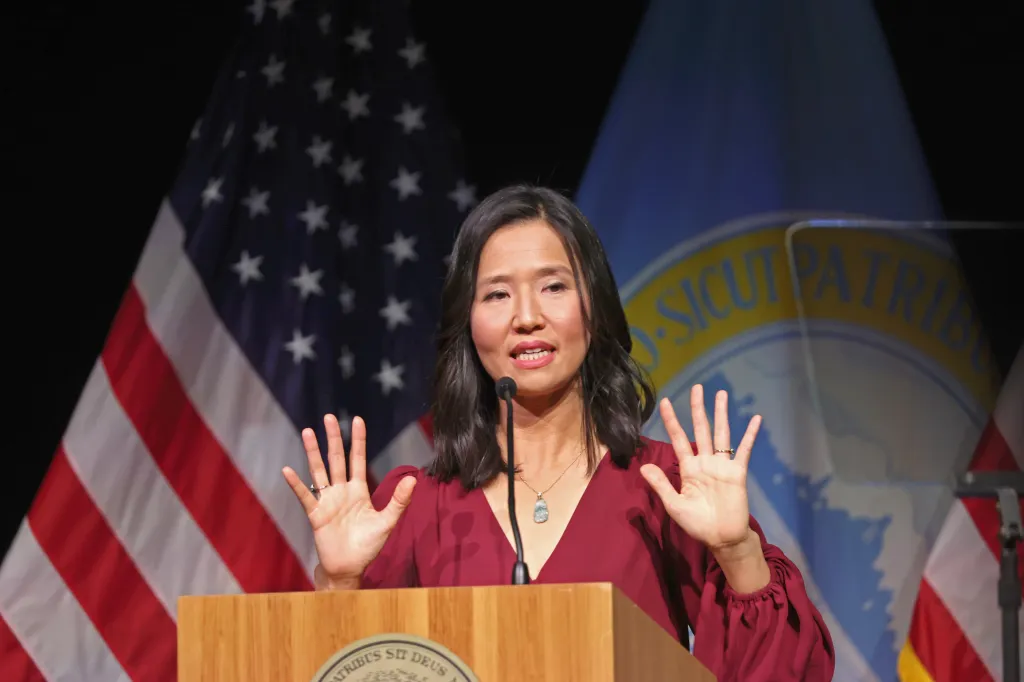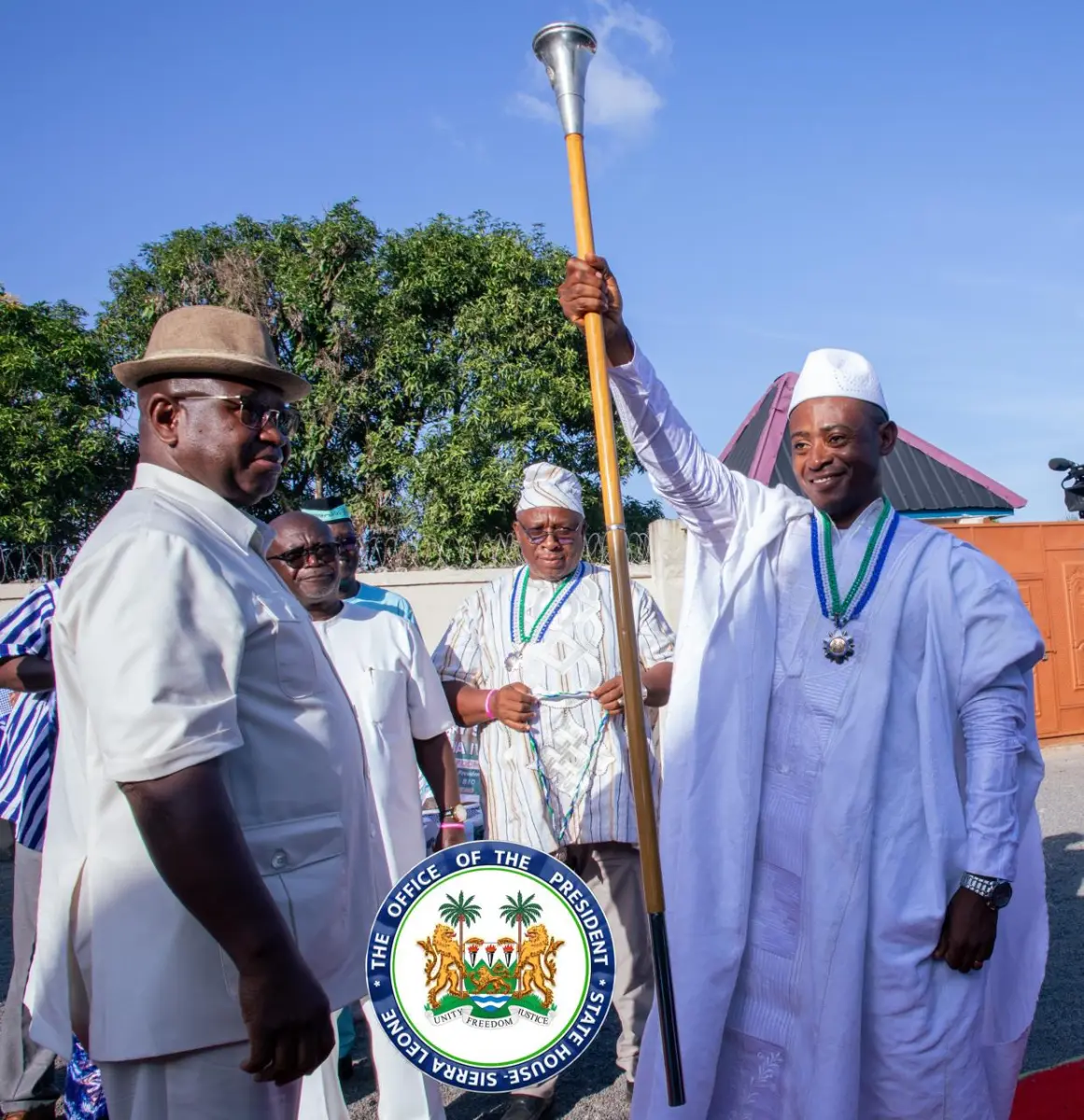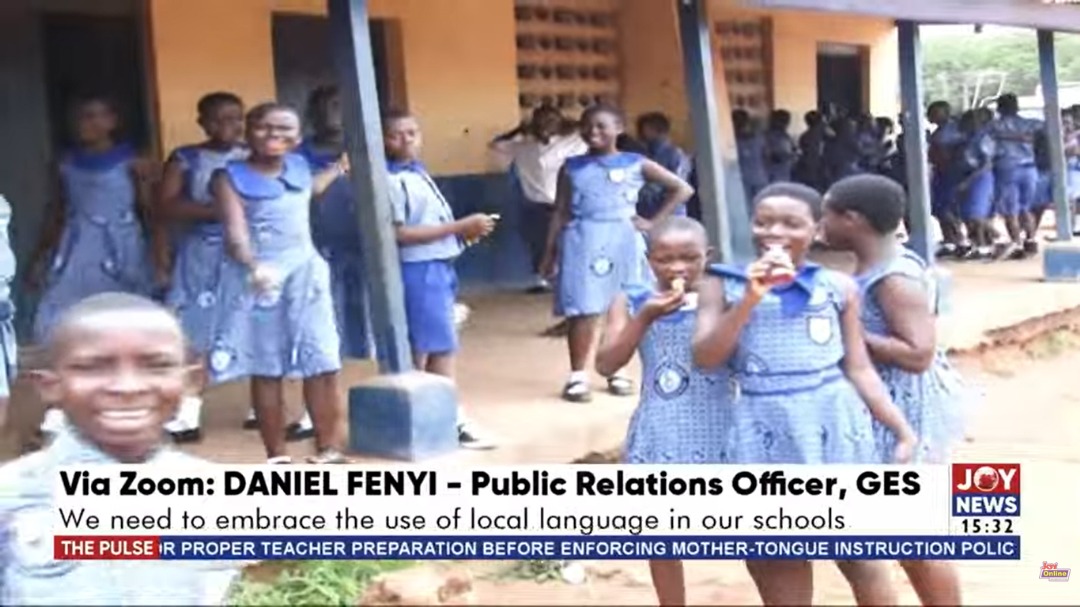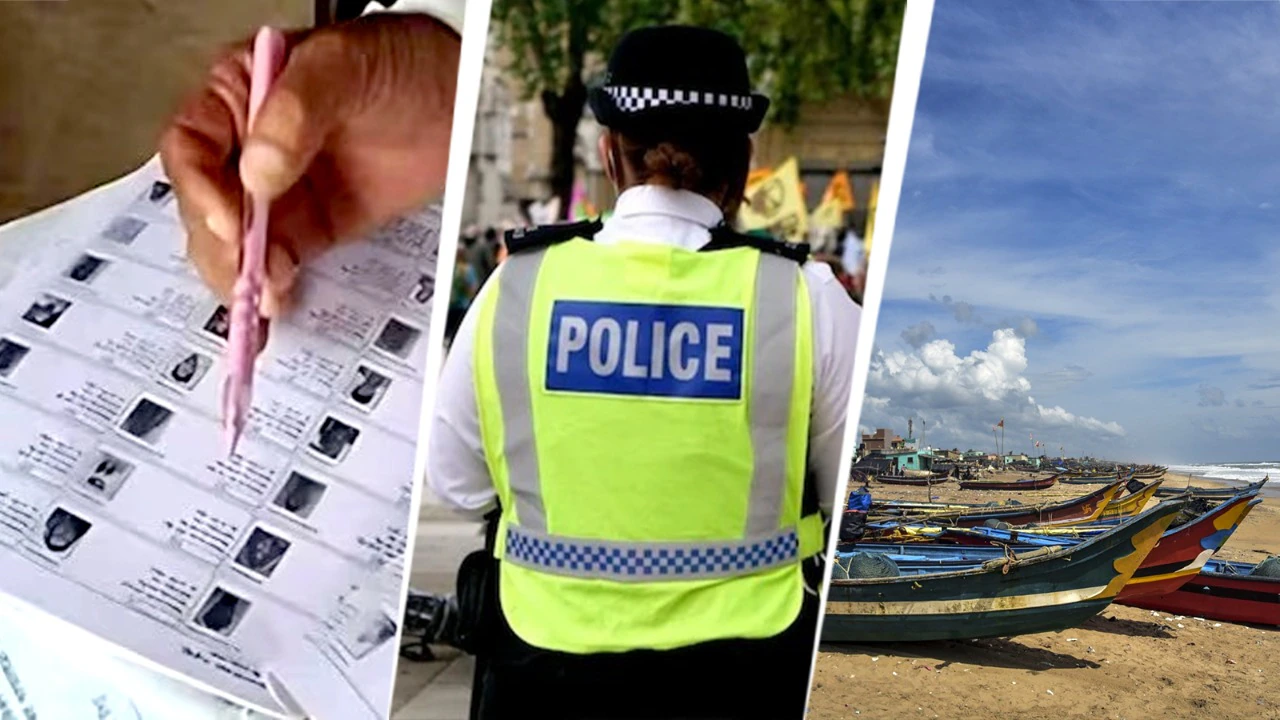Copyright The Boston Herald

Boston Mayor Michelle Wu delivered the city’s first “State of the Schools” address Tuesday night, an optimistic speech focusing on the district’s achievements, announcing a couple new goals and programs, and issuing a “call to action for every sector of our city” to get involved with BPS. “When our administration started, school communities were feeling the impact of the pandemic — and five superintendents in just seven years,” Wu said. … “Today, we’re outperforming all ten of what state administrators track as our comparable peer districts. After years of instability, we’re seeing real, meaningful progress. But we’re not yet where we need to be.” The State of the Schools speech, delivered to a full Josiah Quincy Upper School auditorium in Chinatown on Tuesday night, congratulated district leadership, school communities and city partners and touched on a wide range of issues: facilities maintenance, academic rigor, early college and AP courses, bus timeliness, federal funding cuts, special education and bilingual programs, and more. Wu, however, did not address several controversial issues in her speech Tuesday night, including the ongoing changes to exam school admissions and the continued lag in MCAS testing scores behind pre-pandemic levels. The beginning of the mayor’s speech cited accountability data released by the state last month, noting “after being stuck in the bottom 10% of schools in the state for more than a decade, BPS has leapfrogged 28 other school districts in the last three years.” Wu followed up on her comments in a press conference after the speech, saying the MCAS and state-monitored metrics like chronic absenteeism or graduation rates are “not where we want to be, but it shows remarkable progress and a glimpse of what’s possible when we give our educators and students the resources that they need.” The 2025 data showed BPS saw gains like increased MCAS scores for younger grades, decreased chronic absenteeism rates, and a five-year high in high school multilingual learner’s English proficiency rate. But it also pointed to many continued sobering challenges like all MCAS scores lagged behind the pre-pandemic 2019 scores and still almost half of high schoolers were chronically absent. Following the speech, the Boston Teachers Union applauded the mayor’s decision to introduce the education-centered speech annually, as well as the mayor’s defense of immigrant students and families and “unprecedented” investment in school buildings. “At the same time, we are concerned about the possibility that the momentum will stall — and now more than ever we need to continue to prioritize new buildings along with significant renovations, because too many of our students continue to learn in dilapidated school buildings,” BTU President Erik Berg said. “Even if we continue building a new school every single year, it will take 109 years to replace every school building. The BTU continues to call for multiple new builds and renovations each year.” BTU leadership also expressed concern with federal funding cuts and called on the city and state to provide investments to “meet the needs of our most vulnerable learners.” Outside the high school venue on Tuesday, several educators and community members gathered signatures to expand bilingual education, and a number of people held signs related to the issue in different languages inside. The mayor made a few announcements in Tuesday night’s speech, starting off by telling families they can now for the first time ever register their kids for schools online in 10 languages. The new online registration is available at greatstarts.boston. The district will also launch a “Wicked Math” program, “a brand new partnership with EdVestors, The Young People’s Project, and The Calculus Project to start advanced math clubs, strengthen math pathways, and train juniors and seniors as tutors for younger students,” Wu announced. Wu also stated a new citywide goal to make before- and after-school programs available and accessible in every school, starting with 20 community hub schools. The city does not have the programs at 17% of schools currently, and many of the programs do not accept state vouchers or have enough spots, the mayor noted. In the program expansion, “if you qualify for a voucher, you can use it at the school your child attends,” Wu said. Wu hit on several data points oft-heralded by BPS in the last year, including that the district has taken on more major facilities projects in four years than the last 40 years, 96% of schools meals are now cooked in-house, 92% of schools have working A/Cs, 16 new bilingual programs have launched, a record 10,500 students participated in the summer jobs program, and more. “This fall we’ve had the best start to the school year on record,” Wu said Tuesday night. “More buses arrived on time in September and October than ever before. Yesterday, 96% of buses arrived on time.” BPS has also seen an increase from 179 high schoolers taking early college courses in BPS in 2022 to 790 last year and over 1,200 this year, Wu highlighted. “Since 2019 Boston has seen a greater increase in students taking AP courses than virtually every other American city,” Wu said. “In 2025 our students took nearly 7,500 AP exams and earned the three or higher on more than two thirds of them. That is a nine point jump in just a year, and the best performance on AP exams in our city’s history.” Wu challenged the audience to “name another city” where every young person is guaranteed a summer job, creating high school to health career pathways with a partner like Mass General Brigham, or partnering for free tickets to cultural institutions for students. “No community on Earth fights harder for the future we know our students deserve,” Wu said. “And we need your help to do even more.” The mayor called partners across the city — listing “businesses, labs, colleges, and hospitals” — to get involved with BPS programs like Principal Partners and the Youth Jobs Fair. In the post-speech press conference, Wu also addressed the controversial plan to drop 17 schools through closures and mergers by 2030. “When it comes to the mergers, closures, consolidations, all of the facilities and community proposals, that has been after building a foundation of three years of community engagement,” Wu said. “To start first with asking our communities, ‘What do you think every school should have as a baseline?'” The mayor cited the Facilities Conditions Assessment Dashboard released under her administration, showing the conditions of each BPS school, and called the project an “opportunity to see renewal and reinvestment in all sorts of different ways.” Both Boston School Committee Chair Jeri Robinson and BPS Superintendent Mary Skipper also spoke Tuesday night, praising Wu’s partnership and investment in education. Skipper answered her three highest priority areas going forward post-speech, listing the district’s achievement and opportunity gap, accessibility, and early childhood opportunities. “We are the oldest public school system in the nation,” Wu concluded her speech. “And, together, it’s time that we make it the best. Thank you for being the village that does this work with us.”



